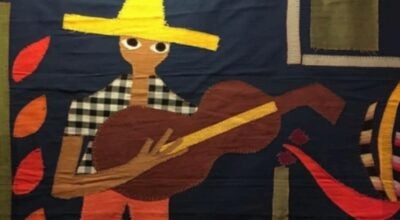Cathy Smith Bowers discusses publishing and judging poetry
Published 7:00 pm Tuesday, December 23, 2008
The following is a continuation of the interview with Cathy Smith Bowers from the December 19, 2008 issue of the Tryon Daily Bulletin. When did you actually publish your first book of poetry? My first book came out in 1992. Usually when a book gets accepted to be published it&squo;s still two years before it comes out. I found out in 1990 that it had won a big national competition and that it was going to be published and it came out two years later in 1992. Was that something you had worked on for many years prior to that? I had been writing in a disciplined way for thirteen years when that first book came out. I say &dquo;in a disciplined way&dquo; meaning I&squo;m not going to write just like it&squo;s a hobby, being a writer is going to be a part of my life. I decided when I finished my masters degree I would start writing in a disciplined way. For thirteen years I wrote poems before my first book came out. I wasn&squo;t really seeing my poems in a volume except for the last five years of that thirteen. For five years I just banged my head against the wall, pulled my hair out and cried and felt sorry for myself because I was trying to get a book published and it would get rejected. It would come close and I&squo;d reorganize it, take poems out, put poems in, come up with a new title, and send it out again. That went on for five years and right after my father died I totally redid the book and wrote a sequence of poems about his death and titled it &dquo;The Love That Ended Yesterday in Texas.&dquo; I knew that this was the book I had been trying to get. I was working on an electric typewriter because there weren&squo;t any computers. There was no way to save it and edit it later. Cathy’s Writing Cottage photo by Chris Bartol I had it together and went and had a clean copy of it made. Two days later I had a letter in my mailbox from Texas Tech University Press saying that they had started a new competition for a first book and they wondered if I had a manuscript to submit. What a coincidence and it was called &dquo;The Love That Ended Yesterday in Texas.&dquo; Their poetry series editor had been so disappointed in the Yale series. At that time, that was the best way to get a first book of poems published. If you won the Yale series you were famous. He would read those winners in the Yale series he said, &dquo;We&squo;re going to start our own first book series in a different way.&dquo; Anybody could submit to the Yale series. He said, &dquo;We&squo;re going to solicit twelve manuscripts a year just from reading the journals.&dquo; So he&squo;d been reading journals published nationally for two years. He had chosen twelve names. So you had poems in journals and that was how you were solicited? Yeah, he had read some of my poems and I was one of the twelve people out of the nation they invited to submit a manuscript. This was in June and everybody had until the end of August to get the manuscript to them. Of course I had mine, and two weeks after they got mine they called me and said, &dquo;Cathy, we can&squo;t make any promises, but we can&squo;t imagine getting another manuscript that we&squo;re going to like as much as this one.&dquo; Wow. He said, &dquo;We don&squo;t even have most of them in yet. Do you have this manuscript out anywhere else?&dquo; I had sent it at the same time to one other place. He said, &dquo;Would you contact them and ask them to release it.&dquo; I did, and just as soon as the August deadline arrived he called me and it was official that I was the winner. That was my big break finally. I got lucky. That&squo;s the hardest part getting that first break. It is so competitive. Especially now because now there are all those MFA creative writing programs and there are so many good poets. Which is wonderful‐ But it makes it harder to be the one who gets the book deal. Now, for someone who had never even taking a creative writing class to win a national competition, it probably wouldn&squo;t happen. What do you think these creative writing classes give writers that you didn&squo;t get while you were learning the craft? I think what it does is keep them from floundering around for so long. There are going to be the ones who just have this natural talent, but there&squo;s still the skill and the craft that you learn. For me, I just had to figure it out on my own. I&squo;d go to the little Lancaster County library and get all the books by Anne Sexton, Sylvia Plath, Philip Levine, and Richard Wilber, anybody that I could find. I&squo;d read and read and I&squo;d find a poem that would knock my socks off and I&squo;d analyze it to figure out how this poet did this. What I hope to give my students is sort of instant lessons in those things I had to figure out myself. Like how to create tension in a poem or enhance the tension. I get real nerdy when it comes to sound, scientific, biological, and the physiology of sound. I think that anybody who works with words has an innate sense of sound. What I can do in my classes now is instead of just saying, &dquo;I don&squo;t think this word is right at the end of the poem,&dquo; I can give them a scientific explanation as to why that sound is not working. The frequency of the vowel sounds in the word, low versus high frequency vowels sounds, create totally different feelings in the reader. It might have something to do with the number of syllables in the word, or whether the final syllable is a falling or rising syllable. That&squo;s more of the left brain part of the writing process. Have you ever judged a poetry competition before? Many. How do you go through the submissions? I have a triage system. I&squo;m reading totally intuitively the first reading and feeling it with my body. I do this with my students too on the first reading. I&squo;ll read a poem and I&squo;ll just decide intuitively whether it&squo;s dead and there&squo;s nothing to be done about it, it might live and might not, or it&squo;s going to live. That&squo;s my three stacks. After I read through the first time, I&squo;ve got a stack of poems that have died. It could be that they&squo;re just full of clich´s which is a killer in a poem. I think that a major task of the poet is to say old things, but in a way that they&squo;ve never been said before. If it seems to have come from some profound idea rather than finding it&squo;s own way out of the abiding image, if it&squo;s didactic, preachy, it&squo;s over there. I end up with two stacks and I&squo;ll start all over and create three stacks out of those. I always start over with two stacks and eventually, I just have this really little stack of poems.&bsp; Then I start looking beyond the intuitive. You&squo;re looking at the actual craft? Yeah, I&squo;m looking at the craft and that kind of left brain stuff, the skill behind it. You go through several layers of intuitive before you get down to that? Oh yeah. Then I&squo;m looking at it from more of a scientific point of view. For instance, if I end up with two poems that both of them just really blow me away emotionally and esthetically, I just love both of them but I&squo;ve got to decide between the two, then the reason I might choose this one over the other is that this one is a very brilliantly crafted sonnet. That shows that this poem not only has the heart, soul, and spirit, it has the brain stuff. It&squo;s not only emotionally effective, but it&squo;s also smart. Do you think all of Shakespeare&squo;s sonnets would have made it through your first passes of intuition? No. I was reading poem just yesterday by Sir Philip Sidney and it was the worst thing I had ever read. It&squo;s horrible. The best thing that would happen is that I wouldn&squo;t even notice it&squo;s a sonnet until I start looking at it that closely. The form, in my opinion, always has to serve the
content, the sentiment, the emotional impetus for the poem. photo by Chris Bartol You mentioned you were excited about doing something like this for the community. I am and that&squo;s why I wouldn&squo;t charge a fee. I charge fees. I just don&squo;t want to charge our little town a fee for doing this. I want to do it as a citizen. I love this little town so much. It&squo;s been so good to me. I am an introvert and I&squo;m not assertive in politics or an activist or anything like that. This is something I can do that really fits my spirit. I&squo;m getting ready to become a Big Sister too. Going back to your original question, judging the poetry contest is something that I can do for this little town that I&squo;ll really enjoy doing and I&squo;ll do a good job and take it seriously. That&squo;s why I wanted to do it. I just hope people, especially those who know me, know that it&squo;s a blind judging and I won&squo;t know whose poem I&squo;m reading. The entrants are asked for two copies of the poem, one with a cover sheet identifying the author, and the other is your reading copy that does not have the poet&squo;s identity on it. The guidelines were crafted referencing respected poetry competitions in other areas and took into account the need for the poem to be judged on its own merit regardless of who wrote it. For more information about the Sidney Lanier Poetry Award visit the Lanier Library on the corner of Melrose and Chestnut next to Tryon Fine Arts Center, call 828-859-9535, or visit the website www.lanierlib.org. The submission deadline is February 19, 2009.





